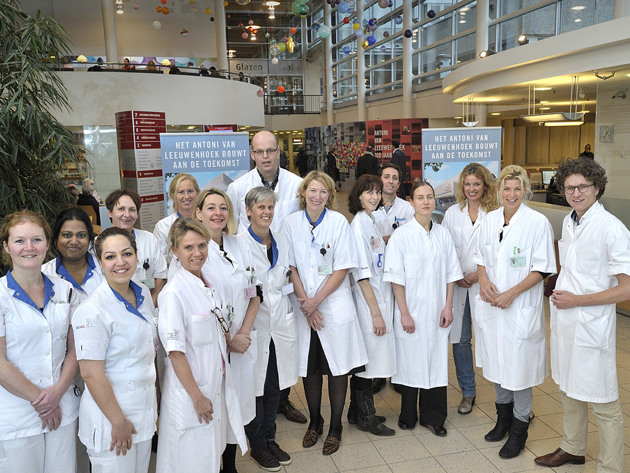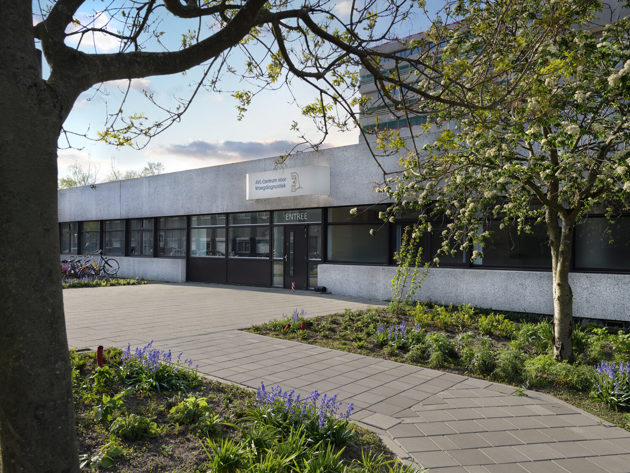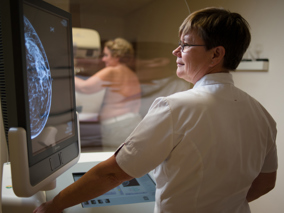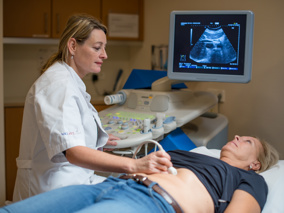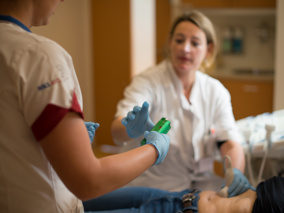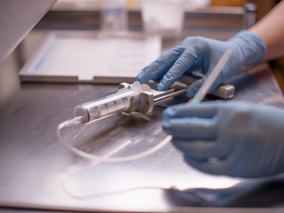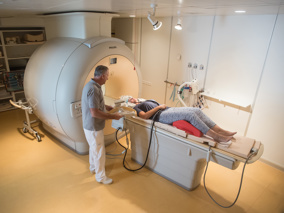Breast cancer
Breast cancer is a type of cancer that develops in the tissue of the breast. Breast cancer occurs in women and men.
Breast cancer is the most common type of cancer in women. About 1 in 7 women will develop breast cancer during their lifetime. There are many different forms of breast cancer to which we have been able to tailor our diagnosis and treatment in recent years. As a result, people with breast cancer live longer. The quality of life after treatment has also improved.
On this page you can read more about the symptoms of breast cancer, the most commonly used tests and forms of treatment for breast cancer.
Learn more about breast cancer
Causes of breast cancer
The cause of breast cancer is often not clear. In 5 to 10%, a hereditary predisposition to breast cancer plays a role. We also see that breast cancer is more common in women who:
- Had the first menstruation at a young age and only menopaused at a late age
- Not having children or were pregnant for the first time after the age of 35
- Long-term use of heavy contraceptive pills at a young age and/or long-term use of hormone preparations for menopausal symptoms
- Have a less healthy lifestyle. Think, for example, of too little exercise, drinking too much alcohol, smoking or being overweight
Symptoms of breast cancer
The symptoms of breast cancer can vary. These signs may indicate breast cancer:
- A lump or dent in the breast
- An inverted nipple
- Eczema around the nipple
- Bloody nipple fluid
Do you notice the following changes in yourself? Then it does not have to be breast cancer right away, but it is wise to have it examined. This can be done at the Center for Early Diagnostics.
Hereditary breast cancer
A small part, about 5%-10%, of people who develop breast cancer have a hereditary cause.
Diagnosis
Breast cancer is a name for many different types of cancer in the breast. After all the examinations, we discuss in a meeting which species you have and what the next steps are. This consultation is called a multidisciplinary consultation. Various breast cancer specialists work together in this. Together they determine which treatment is best in your situation.
We will tell you clearly and honestly about the possible treatments. You will also hear what the chances of success are and what consequences the treatment may have. This way you can choose the treatment plan that feels best for you.
Waiting times / Second opinion
You have been diagnosed with breast cancer. This brings with it many questions and uncertainty. We try to reassure you as much as possible by giving clear answers to all your questions.
You can contact us quickly for a second opinion. You can also come to us if you have been diagnosed with breast cancer elsewhere and would like to be treated with us. We discuss all patients for a second opinion in our multidisciplinary consultation in which all breast cancer specialists are involved. This way you get a complete advice that suits you. You will usually receive our treatment advice the same day.
-
5 weekdays
Rapid diagnostics
For suspected breast cancer, you can usually come to our hospital within 4 to 5 weekdays after obtaining your referral from your general physician. Most people have their diagnosis within two hours.
-
5 days
Second opinion
It will take approximately 7 days before your second opinion. The wait time for the medical oncologist for metastatic breast cancer tends to be longer, however.
 nl
nl
